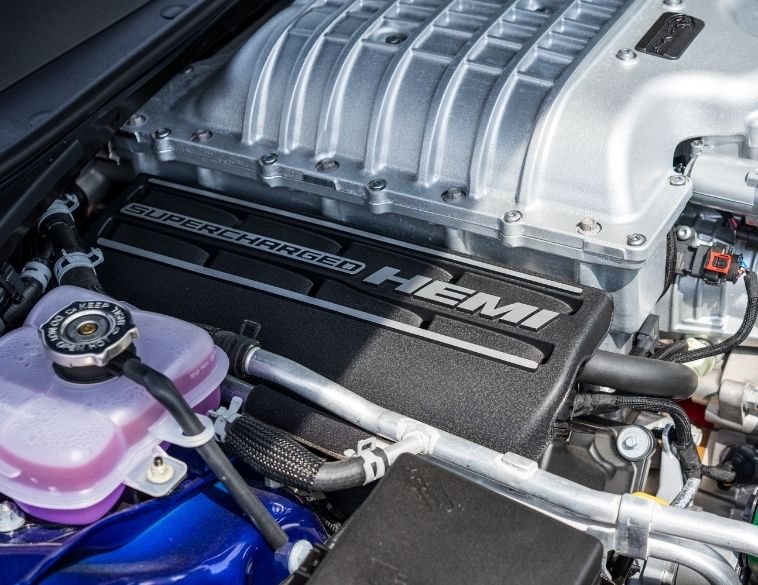Uni-Select (TSX: UNS) (“Uni-Select” or “Corporation”) reported its financial results for the first quarter ended March 31, 2020.
“In response to the COVID-19 pandemic, we took immediate and prudent action to safeguard our employees and customers and ensure business continuity. We put in place temporary measures to respond to the crisis and ensure maximum liquidity and financial flexibility, including temporarily closing a portion of our operations, as well as reducing work hours and compensation for the senior leadership team. In addition, we proactively managed our working capital and suspended our dividend,” stated Brent Windom, President and Chief Executive Officer, Uni-Select.
“First-quarter results reflect the impact of COVID-19 which began in March. Sales decreased 2.9%. Excluding COVID-19 related impacts, sales would have been essentially flat compared to last year. Our profitability was impacted more significantly year over year due to COVID-19 impact as well as the noticeable foreign exchange losses following the recent currency volatility, a one-time charge and the reduction in volume rebates from our decision to optimize our inventory. These elements resulted in a lower absorption of fixed costs that ultimately impacted our margins,” continued Mr. Windom.
“As mentioned previously, the team continues to act on a number of fronts to address the new market realities as they are happening. We are confident that, with these actions including the ones to enhance our liquidity, we will be in a situation not only to weather the crisis but to emerge in a positive position,” concluded Mr. Windom.
- Executed business continuity plan in a timely manner, allowing Uni-Select to serve its customers while ensuring that health and safety protocols were followed;
- Sales of $407.7 million, down 2.9% with an estimated COVID-19 impact of 3% to 4% and a corresponding impact on fixed costs absorption of 80 to 100 basis points;
- EBT of $(8.6) million versus $(1.3) million in 2019; adjusted EBT(1)of $(5.9) million versus $7.1 million in 2019, both impacted by foreign exchange losses and a one-time charge together totalling $4.8 million ($0.08 per share);
- EPS of $(0.16) versus $(0.03) in 2019; adjusted EPS(1) of $(0.10) versus $0.12 in 2019; and
- Free cash flows(1)of $11.8 million, compared to $19.2 million last year.
| Unless otherwise indicated in this press release, all amounts are expressed in thousands of US dollars, except tabular amounts, per share amounts and percentages. |
| (1) | Non-IFRS financial measures. Refer to the “Non-IFRS financial measures” section for further details. |
Current Situation
In April, overall sales decreased by approximately 50% as compared to last year, with a similar decrease in payroll costs. In the first few days of May, sales were marginally improved over April.
Uni-Select is in an advanced stage of discussions with certain existing lenders and governmental institutions to refinance certain indebtedness with a view to preserving and increasing its available liquidity.
As of May 12, 2020 Uni-Select has available liquidity of approximately $110 million following liquidity preservation efforts taken in the context of the COVID-19 pandemic. Upon securing the proposed refinancing, total available liquidity would increase by an additional $100 million to $210 million.
Segmented First Quarter Results
The FinishMaster U.S. segment reported sales of $202.2 million for the quarter, a decrease of 1.1% compared to 2019, affected by negative organic growth of 2.0% and the expected erosion of sales resulting from the integration of company‑owned stores, which were partially offset by one additional billing day.
The impact of COVID‑19 on this segment is about 2.0%. Consequently, excluding this impact, organic sales of the FinishMaster U.S. segment would have been relatively flat, which is an improvement compared to the prior quarter, as initiatives, to counteract business environment and softness in the refinish market, are starting to show results.
This segment reported an EBT of $4.0 million, and once adjusted for special items related to the PIP, EBT was $4.8 million or 2.4% of sales compared to $9.0 million or 4.4% of sales in 2019.
The decrease of 200 basis points of the adjusted EBT margin is attributable to a lower volume of rebates in relation to the optimization of inventory, a reduced absorption of fixed costs caused by lower sales volume, mainly from the COVID‑19 impact, as well as a one-time charge. These elements were partially compensated by benefits from the PIP and the optimization of processes.
Sales for the Canadian Automotive Group segment were $108.9 million, compared to $113.1 million in 2019, a decrease of 3.7%, reflecting negative organic growth of 4.9%, in large part attributable to an estimated 3.5% to 4.0% effect of COVID‑19, as well as the depreciation of the Canadian currency.
These elements were partially compensated by the contribution of one additional billing day and business acquisitions. Excluding the effect of COVID-19, organic growth is estimated at negative 1.0% for the quarter, since 2019 benefitted from a favourable timing in sales of paint, body and equipment (“PBE”) to independent members.
This segment reported a negative EBT of $3.1 million, and once adjusted for special items related to the PIP, EBT was $(2.6) million or (2.4)% of sales compared to $3.5 million or 3.1% of sales in 2019. The 550 basis points decrease of the adjusted EBT margin is due to lower volume rebates and incentives, as well as a lesser absorption of fixed costs resulting from a reduced level of sales, notably in relation to COVID-19.
As well, the EBT was penalized by foreign exchange losses due to the depreciation of the Canadian dollar, which was accentuated at the end of the quarter. These elements were partially compensated by the benefits from the PIP and lower performance bonuses.
The Parts Alliance U.K. segment recorded sales of $96.5 million, a decrease of 5.7% compared to the same quarter last year. This variance is attributable to the organic loss of 4.5%, the depreciation of the British pound, and the expected erosion resulting from the integration of 13 company-owned stores within the last twelve months, which were partially compensated by one additional billing day.
Excluding the COVID-19 impact, which approximates 5.5% to 6.0% for this segment, organic growth would have been positive between 1.0% and 1.5%, powered by recently opened greenfields. EBT and adjusted EBT for this segment were $(0.3) million or (0.3)% of sales, compared to $2.3 million or 2.3% of sales for the same quarter last year, a decrease of 260 basis points.
The EBT margin was impacted by a lower gross margin resulting from an unfavourable product mix, as well as from lower volume of rebates, which were revised downwards in expectation of reduced purchases. These elements were partially compensated by savings resulting from initiatives related to the PIP. Additionally, this segment benefitted from COVID-19-specific governmental subsidies of about $0.6 million in relation to the furloughed employees.
Update on the Performance Improvement Plan
During the first quarter of 2020, the Corporation realized annualized savings of $2.9 million, from the contribution of all segments. Consequently, annualized savings realized since the inception amounted to $53.5 million as at March 31, 2020, exceeding expectations. A total of six stores were integrated during the quarter.
The PIP is now completed, with annualized expected savings realized. The Corporation will pursue continuous improvement processes, which are currently accelerated to be strategically positioned for the recovery and growth post-COVID-19.



